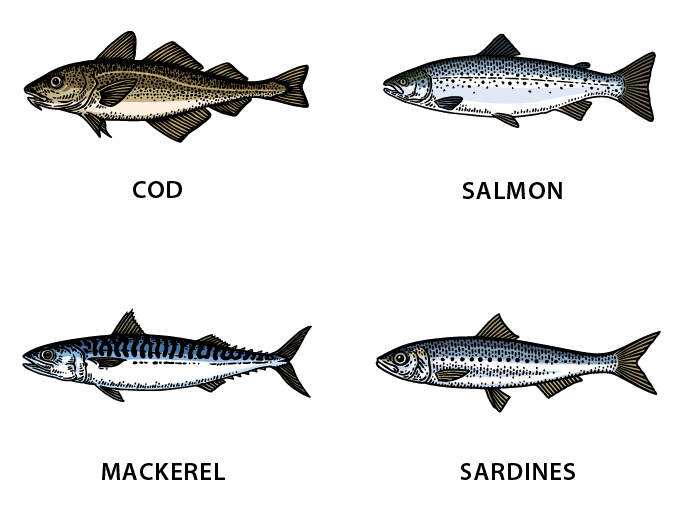Award-Winning Quality
Omega-3 Fish Oil Forms
Fish oils are commonly available in four forms: TG (Natural Triglyceride), EE (Ethyl Ester), rTG (Re-Esterified Triglyceride), and PL (Phospholipid). Whether we choose a TG, EE, rTG, or PL oil, our EPA and DHA blood levels can be easily raised to an optimal amount when taken daily.
Omega-3 supplements are lifestyle supplements meant to be taken long-term for the benefits associated with an EPA and DHA red blood cell concentration above 8%. An appropriate dose of any form can achieve this goal and help maintain optimal omega-3 levels.
TG
NATURAL
TRIGLYCERIDE
TRIGLYCERIDE
Fish naturally contain the omega-3 fatty acids EPA and DHA as triglyceride esters (TG). Natural TG fish oils provide a maximum of 300 mg of combined EPA and DHA per 1,000 mg of oil (30% potency). These are the most common fish oils on the market, and some prefer them because of their close similarity to eating fish.
Read More
EE
ETHYL
ESTER
ESTER
Since EPA and DHA concentration and ratio can’t be altered in natural TG fish oils, the ethyl ester (EE) fish oil form was created. By removing the glycerol backbone of a TG fish oil, the result is three free fatty acids (FFAs) and a free glycerol molecule. An ethanol molecule is attached to each FFA, creating EEs.
Read More
rTG
RE-ESTERIFIED
TRIGLYCERIDE
TRIGLYCERIDE
Re-esterified triglycerides (rTGs) are created when EEs are freed from their attached ethanol groups and are once again bound to a glycerol backbone. rTGs retain the same potency and fatty acid ratios of their EE counterparts.
Read More
PL
PHOSPHOLIPID
Phospholipid omega-3s, derived from phosphatidyl choline, provide a potent alternative to krill oil. The superior bioavailability of phospholipid omega-3s ensures efficient absorption by the body.
Read More
While there are four common forms of marine oils, Carlson fish oils currently fall into five categories
- TG: Non-concentrated 100% natural triglycerides
- EE: Concentrated ethyl esters
- rTG: Concentrated re-esterified triglycerides
- TG & EE: A mixture of natural TG form and potent EE form
- PL: Phospholipids from herring caviar extract
The Most Important Health Benefits of EPA and DHA
The most beneficial omega-3s are EPA (eicosapentaenoic acid) and DHA (docosahexaenoic acid). EPA is most recognized for its heart and mood health benefits, and DHA is best known for its role in supporting brain and vision health.











